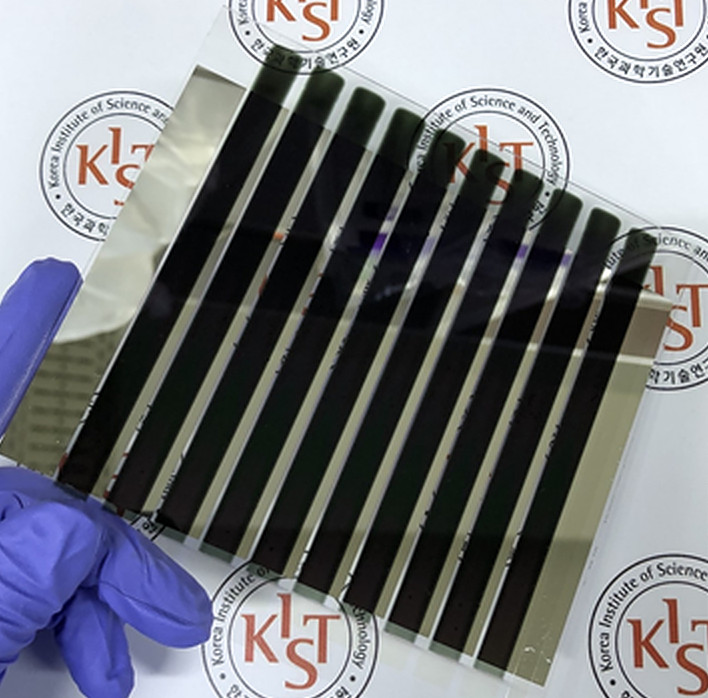Scientists at the Korea Institute of Science and Technology (KIST) have fabricated an organic solar cell based on polymer additives that they claim are able to solve the performance degradation issue of large-area organic solar cells.
“The spin coating method, a solution process mainly used in the laboratory research stage, creates a uniform photoactive layer mixture as the solvent evaporates rapidly while the substrate rotates at a high speed,” the researchers explained. “However, the large-area, continuous solution process designed for industrial use caused solar cell performance deterioration because the solar cell material solution’s solvent evaporation rate was too slow. Consequently, unwanted aggregation between the photoactive materials can be formed.”
The Korean group designed the cell with ternary photoactive layers that contain polymer additives and, as a result, prevent aggregation in photoactive layers. It also engineered nano-level structure control to improve sunlight trapping.
Popular content
The solar cell achieved a power conversion efficiency of 14.7%, which the academics said is 23.5% higher than that of a conventional binary system. The device was also able to retain 84% of its initial efficiency after 1,000 hours at a temperature of 85 C.
“We have gotten closer to organic solar cell commercialization by proposing the core principle of a solar cell material capable of high-quality, large-area solution processing,” said KIST researcher Hae Jung Son. “Commercialization through follow-up research will make eco-friendly self-sufficient energy generation possible that is easily applicable to exterior building walls and automobiles and also utilized as an energy source for mobile and IoT devices.”
This content is protected by copyright and may not be reused. If you want to cooperate with us and would like to reuse some of our content, please contact: editors@pv-magazine.com.



8 comments
By submitting this form you agree to pv magazine using your data for the purposes of publishing your comment.
Your personal data will only be disclosed or otherwise transmitted to third parties for the purposes of spam filtering or if this is necessary for technical maintenance of the website. Any other transfer to third parties will not take place unless this is justified on the basis of applicable data protection regulations or if pv magazine is legally obliged to do so.
You may revoke this consent at any time with effect for the future, in which case your personal data will be deleted immediately. Otherwise, your data will be deleted if pv magazine has processed your request or the purpose of data storage is fulfilled.
Further information on data privacy can be found in our Data Protection Policy.